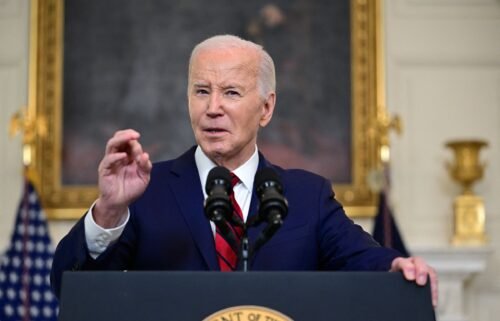The world’s best pension system is being pushed to the brink

Record low interest rates are forcing the world’s best pension system to take drastic action aimed at staving off cuts to payouts that were once unthinkable.
An extended period of negative or record low interest rates has put huge pressure on pension funds in the Netherlands, forcing them to alert retirees that their incomes could be cut. The Dutch government is working urgently to resolve the immediate problem, but the emergency is fueling concern in a country where an increase in the number of retiring workers means pension changes are inevitable.
Dutch workers have typically been able to retire on a pension equivalent to roughly 80% of their average pay. But stress on pensions from low interest rates has led to talk of reduced payouts to retirees, or increased premiums for those still in work, shocking a nation that has come to rely on a system known for its strict accounting and reliability. Nearly everyone has access to pensions from both the government and through their employer, and the Netherlands was ranked first in investment adviser Mercer’s 2019 annual review of global pensions.
For global pension funds, low interest rates couldn’t have come at a worse time. Returns on their investments are poised to drop just as a seismic demographic shift takes hold. People are living longer, and populations are aging, which means there are fewer younger workers to pay into the system, keeping it afloat.
A report from the Group of 30 published last week estimates that the world’s top economies will face a shortfall of $15.8 trillion in 2050 — up from $1.1 trillion in 2017 — in providing financial security for their citizens in retirement. And that’s using optimistic assumptions on economic growth, wages and returns on pension investments.
“It’s an extraordinary situation,” said Shaktie Rambaran Mishre, chair of the Dutch pension federation, which represents about 200 pension funds. On Tuesday, the Dutch government was forced to propose an intervention, which Mishre said “creates peace for now.”
But for the Netherlands, these are uncharted waters. Mishre said such actions haven’t been necessary “as long as I’ve read the news.”
On the brink
These developments have roots not in The Hague, the Netherlands’ seat of government, but in the cities that host the world’s most powerful central banks: Washington, Frankfurt and Tokyo.
Central bankers have conducted an unprecedented experiment since the 2008 financial crisis. To juice a sluggish global economic recovery, they’ve pushed interest rates to their lowest points in history; in Europe and Japan, rates have been in negative territory since 2014 and 2016, respectively. Meanwhile, central banks have gobbled up bonds via massive asset purchase programs with the aim of lowering long-term borrowing costs.
Years later, the worrisome side effects of such policies face growing scrutiny. One consequence of negative rates has been the impact on banks, which have to pay to park their money with central banks instead of collecting interest. Savers have also been penalized.
Now the impact on pension funds is coming into focus. These entities count on bonds for stable returns to fund payouts to pensioners. Yields on bonds from countries such as Germany are negative, forcing them to chase returns elsewhere. In the Netherlands, stringent accounting rules for calculating future costs — generally seen as a positive — mean that funds face higher liabilities when interest rates are low. If they can’t meet their obligations, they’re forced to cut benefits.
“In all likelihood, we will have to reduce pensions next year, and it does not look good for the coming years either,” Corien Wortmann-Kool, the chair of ABP, one of the Netherlands’ largest funds, warned last month.
The Dutch pension system has two main components: a pay-as-you-go state pension for everyone, and private pensions that employees and employers both pay into, with the level of premiums often negotiated by labor unions.
Most workers have access to both — and with both public and private funds seen as reliable, they’re confident they’ll be covered through retirement, despite relatively high levels of household debt. Assets in pension funds in the Netherlands total $1.5 trillion, making it home to one of the largest pools of pension reserves in the world.
In such an environment, any cuts would be startling. The Dutch government had forecast that roughly half of pensioners would face small pension cuts in 2020.
“Because we have so much money, there is big interest in keeping [it] safe,” said Tuur Elzinga, who handles pension issues for FNV, the country’s largest trade union. He said union members across the country had been prepared to protest if the situation wasn’t resolved.
Under pressure, the Dutch government on Tuesday announced a plan to mitigate the pain. Wouter Koolmees, the minister of social affairs and employment, stated he would relax some of the requirements on funds next year that would have forced cuts, allowing most to be avoided. The unusual proposal, which FNV and the Dutch pension federation applauded, will be debated in parliament Thursday.
“It’s a very good step,” Elzinga said.
A broader crisis
The Netherlands had been focused on ways to deal with the demographic shift, developing a plan to reform its system that’s expected to be finalized in 2020. Per the plan, the country would increase its retirement age to 67 in 2024. After that, for every year life expectancy in the country rises, citizens would need to work for another eight months to reach retirement.
But in the near term, it’s the emergency caused by low interest rates that’s taken center stage.
“It’s something that we haven’t seen before to this scale,” said Marcel Klok, senior economist at Dutch bank ING. A growing lack of trust in pension systems could have a broader economic impact if it causes consumers to rein in spending, he added.
Marc Heemskerk, a Mercer pension expert based in Amsterdam, said that the tension extends beyond the Netherlands, pointing to Denmark as another country that could be exposed. In a perverse way, the stricter, more reliable pension systems could be the ones to face complications. “The more guarantees you have on your pensions, the [worse] the problem is,” Heemskerk said.
For central banks, the pension issues feed broader concerns about their unorthodox policies in the last decade.
The European Central Bank has faced unprecedented dissent since its meeting in September, when it announced that it would push interest rates further into negative territory and restart its nearly $3 trillion asset purchase program. After the meeting, Klaas Knot, a member of the ECB’s governing council and president of the Dutch central bank, released a rare dissenting statement, calling the measures “disproportionate to the present economic conditions.”
Christine Lagarde, who began her term as president of the European Central Bank this month, is aware of concerns about the consequences of negative rates, and has pledged to review them during her term. From the perspective of Dutch pension funds, though, painfully low rates are not going anywhere — and it’s just a matter of whether the government can ease the hurt before systemic changes take effect next year.
“The persistent low interest rate is a reality that we obviously need to take into account,” ABP’s Wortmann-Kool told pensioners last month.




